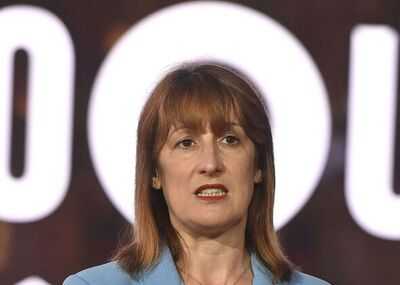
Rachel Reeves will face a shortfall of more than £20billion in her Budget on November 26, with some experts predicting it could be as much as £50billion. The Office for Budget Responsibility watchdog will confirm the official figure nearer the time, but we know it's a lot. And because the Chancellor has struggled to cut spending, she is expected to fill the gap by putting up taxes.
Labour says it will not put up taxes on "working people", such as National Insurance, the basic, higher, or additional rates of income tax, or VAT, so Ms Reeves is looking for other options. Here are five taxes she could raise:
1 - More taxes on inheritanceThe Chancellor is believed to be looking at ways to increase inheritance tax, including a possible drastic change that would hit families hard. This may not involve increasing the tax rate. Instead, she is looking at a more subtle change that might actually cause even more pain.
At the moment, individuals can provide a gift to family members without paying inheritance tax if they live for another seven years. Ms Reeves could extend this to 10 years. But she could go much further, and simply abolish the time limit entirely.
This would mean anyone who receives financial help from a parent, for example to assist with a mortgage deposit, is in danger of being taxed. There may be a "lifetime gift allowance", allowing parents to provide a certain amount of financial help to their children but imposing taxes if this limit is exceeded, regardless of how long it is before the parent dies.
2 - More taxes on motoristsA temporary 5p cut in fuel duty, introduced in 2022, is due to end next spring. The Chancellor could decide to spread the increase out over time rather than imposing a 5p increase all at once, but some sort of increase is likely.
But in addition, she could signal that the days of freezing fuel duty are over. Except for the temporary cut, fuel duty has not changed since 2011, and this has cost the Government £100billion between 2011 and October 2024. Ms Reeves may well announce plans to increase it in the future.
The Chancellor could also look for ways to tax electric vehicles, which currently are charged far less than petrol or diesel cars. The Government is keen to encourage motorists to switch to electric cars, but it also needs to find a way to make up the huge sums it will lose in fuel duty once everyone does so.
3 - More taxes on foodA Food Strategy published in 2022 called for taxes on food containing sugar and salt, saying this would encourage manufacturers to make their products healthier, and push shoppers to buy healthier options.
The Conservative government at the time rejected the idea, although it did separately introduce a tax on high-sugar drinks.
However, Ms Reeves could revive the idea now. A tax rate of £4/kg for sugar and £8/kg for salt would raise around £3.5billion by 2029-30, according to the Resolution Foundation think tank. Another option would be to simply increase the soft drink levy - or to do both.
4 - More taxes on investorsAn increase in Capital Gains Tax is highly likely. At the moment, Capital Gains Tax rates are lower than income tax rates. Labour MPs are likely to welcome any decision to equalise the taxes.
It would mean some people who invest in shares and make a profit, or who own a second home and sell it at a profit, would pay more tax.
There has been speculation that Ms Reeves could even start charging Capital Gains Tax on main residences, or what are often called family homes, but this is probably a step too far.
5 - More taxes on pensionersAs reported on Tuesday, there are calls for the Chancellor to increase taxes paid by pensioners. One option would be to cut National Insurance, perhaps by 2p in the pound, and to increase income tax by the same amount.
For many working people, this would make more or less no difference to their total tax bill.
But National Insurance is not charged on pensions. So, for people who rely on a pension for their income, it would be a significant tax increase.
The Chancellor could also start taxing state pensions by stealth.
All she would need to do is continue the current freeze on the income tax threshold so that, due to the impact of inflation, the state pension rises above the threshold. This would mean it can then be taxed.
You may also like

ICAO confers 'Council President Certificate' on DGCA for 'effective safety oversight system'

EU's new strategic agenda sees key role for India in new world order

Beloved BBC TV sitcom duo dress in drag - can you guess who they are?

Tennis world No. 13 admits 'I'm simply not at the level' and won't play rest of season

MAFS UK groom thanks experts for his 'perfect match' in romantic honeymoon






